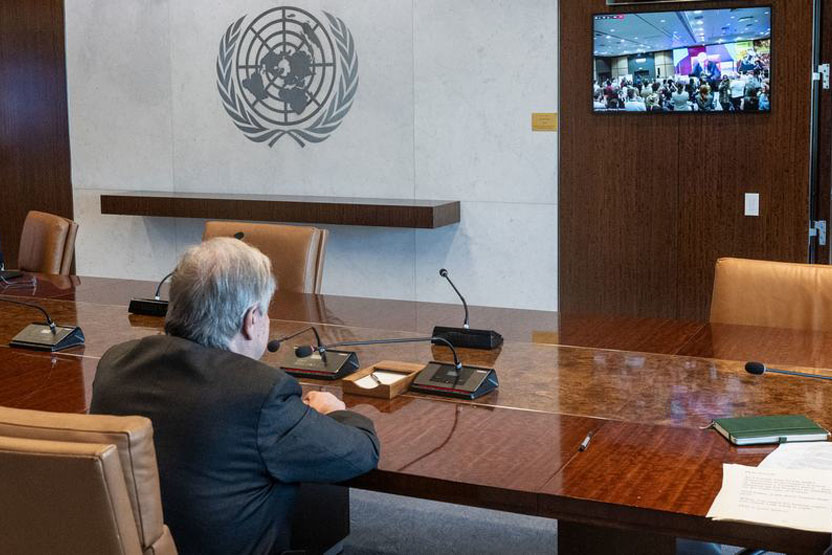In historic address, António Guterres urges global action to uphold human dignity, decrying silence on Gaza and warning of climate-driven rights violations

In a landmark speech delivered to Amnesty International’s Global Assembly, UN Secretary-General António Guterres painted a grim portrait of a world gripped by what he called a “moral crisis” — driven by escalating authoritarianism, global inequality, and above all, a shocking indifference to human suffering, particularly in Gaza.
Speaking to human rights defenders gathered in Prague via video link, Guterres called on states to uphold international law, stressing that the defense of human rights must be “consistent and universal, even — and especially — when inconvenient.”
But it was the situation in Gaza that dominated his remarks.
Gaza: “A moral crisis that challenges the global conscience”
Referring to the devastation following the 7 October 2023 attacks, Guterres firmly reiterated his condemnation of the terror acts committed by Hamas and other Palestinian groups. However, he emphasized that “nothing can justify the explosion of death and destruction since.”
“The scale and scope is beyond anything we have seen in recent times,” he said, expressing deep dismay at what he described as a global failure of empathy. “I cannot explain the level of indifference and inaction we see by too many in the international community. The lack of compassion. The lack of truth. The lack of humanity.”
Guterres described conditions in Gaza as “unimaginable,” with UN personnel themselves left physically and emotionally shattered. Many, he said, “feel neither dead nor alive.”
Since May, more than 1,000 Palestinians have been killed while trying to access food — not in combat, but in desperation. “This is not just a humanitarian crisis. It is a moral crisis that challenges the global conscience,” the UN chief stated.
He called for an immediate and permanent ceasefire, the unconditional release of hostages, and full humanitarian access, while reaffirming that a two-state solution remains the only viable path forward.
Climate crisis: A human rights catastrophe
Turning to the planetary emergency, Guterres again framed the climate crisis as an urgent human rights issue. Citing the International Court of Justice’s recent advisory opinion affirming that climate change is a legal matter under human rights law, he insisted that “the poorest and most vulnerable are paying the highest price.”
He warned against “dirty practices” being masked by clean energy narratives, calling for a just transition that does not sacrifice human dignity.
“We cannot accept enormous violations of human rights, many of them against children, in the name of climate progress,” he said. “Climate justice is not optional — it is a duty.”
His remarks followed the ICJ’s historic declaration that failure to act on climate change may carry legal consequences under international law — a development hailed by rights advocates as a turning point for environmental accountability.
A call to action
Guterres also spoke briefly about conflicts in Ukraine and Sudan, but his overall message was clear: the world must return to core values of dignity, justice, and solidarity. That means not only condemning injustice when politically convenient but standing up for human rights — in Gaza, in the courts, and in the climate arena.
He concluded by praising Amnesty International’s legacy of activism, saying their work remains “indispensable” in this moment of global reckoning.
“Your courage continues to change lives,” he told delegates. “Let’s meet this moment with the urgency it demands. And let’s never, ever give up.”


Comment